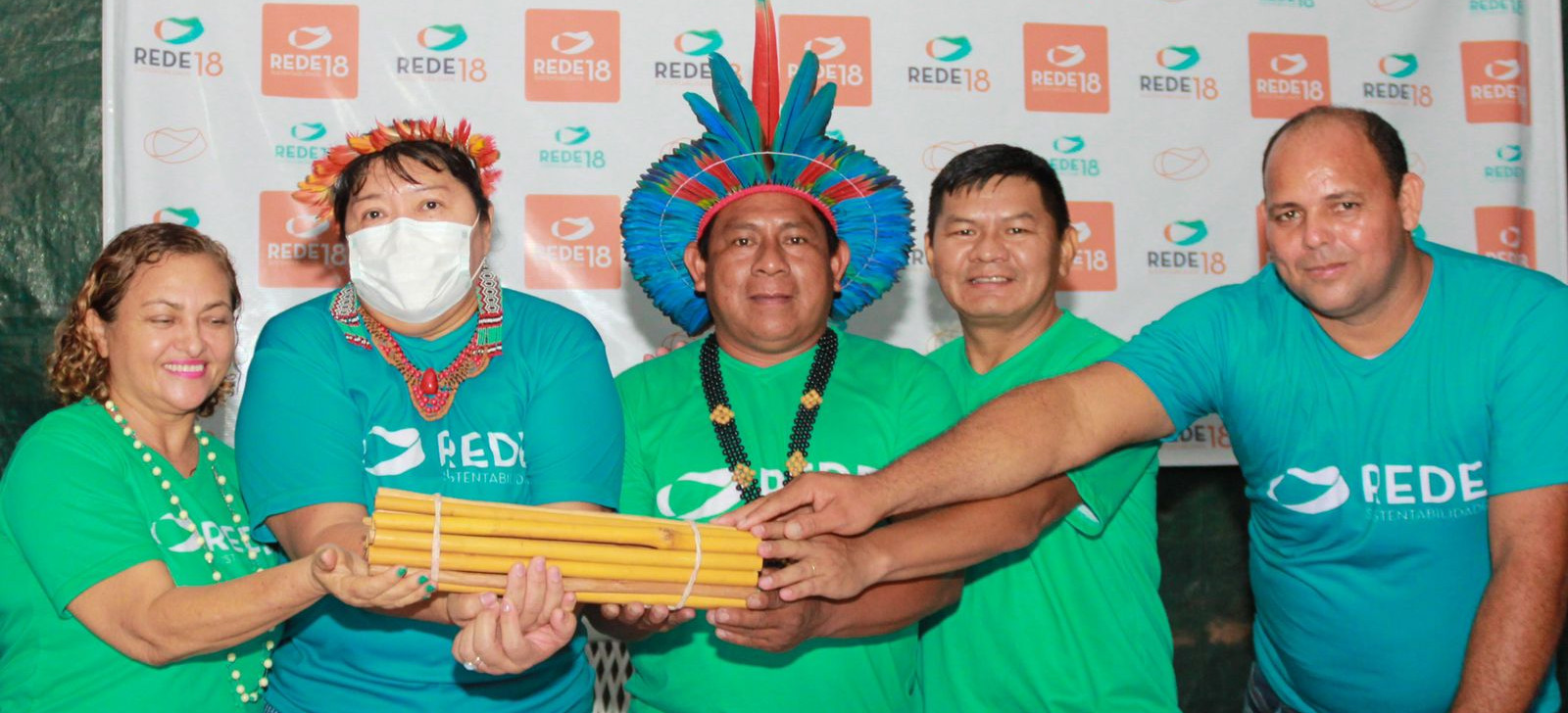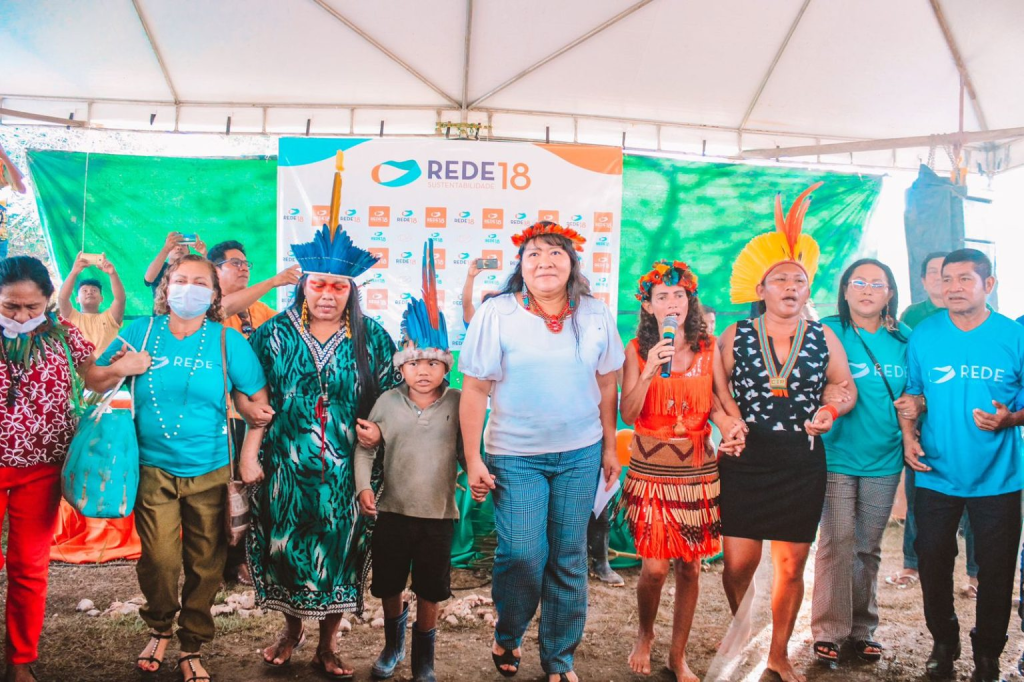‘It is possible to elect indigenous representatives’, says Joenia Wapichana as she launches pre-candidacy for re-election
27 de June de 2022

Gabriel Abreu – Cenarium Magazine
BOA VISTA – The only indigenous parliamentarian in the National Congress will try, in the October elections, to continue as a federal lawmaker in 2023. Joenia Wapichana (Rede Sustentabilidade) had a great challenge over the past years: trying to curb the anti-environmental policy of the Bolsonaro government. During this period, traditional peoples have had to deal with the increase in deforestation and the invasion of miners in their lands.
During the launch event, last Friday, 24, at the Makunaima Center, in the São Marcos Indigenous Land, in Roraima, the congresswoman recalled the 2018 election and said that it was the moment when indigenous peoples broke through the barrier and showed that it is possible to elect indigenous people.
“We broke through and showed that it is possible to elect indigenous representatives. Today we have a voice, representation, we are authorities. We are able to make laws, propose, supervise, investigate, and we are able to indicate amendments for our communities”, emphasized the congresswoman.

Political project
When launching her pre-candidacy, the congresswoman highlighted that her performance in Congress is based on a technical discourse and with proposals, and that there is currently a political project of change so that more indigenous people enter politics.
“Mandates are not created, they are built. The work is not done individually, it is collective. This is the flag that I have carried from the very first moment. Within an indigenous assembly they chose me to run for this position, as a federal lawmaker. But we need more people to fight on our side, we have work and proposals, we have technical discourse and discourse with proposals. We have a composition, yes, and we have a political project, not a project for a position”, Joenia said in her speech.
Indigenous women
The only female indigenous lawmaker in the Federal House believes that more indigenous women need to be encouraged to run for positions in the Legislative and Executive powers.
“It’s not simply a dream. I got elected and I am here, an indigenous representative without giving up my values, my principles, and mainly not forgetting my people, my origin, and even always remembering our identity. For women, it is much more rewarding for indigenous women to make themselves available to run for electoral positions. We will really give the support. The Network is a small party, but we have an electoral fund that will precisely help the candidates for federal lawmakers who are there committed”, she recalled.
Support
Were during the launch of the pre-candidacy, the president of the Workers Party of Roraima (PT), Titonho Bezerra and Airton Lima, member of the PT, were also in the act reaffirming the commitment and support for the re-election of the lawmaker, announced, including, by the pre-candidate to the presidency of the Republic, Luiz Inácio Lula da Silva, in a meeting with Joenia, in April, in Brasilia.
Leaders and pre-candidates of the Socialist Party and Freedom (Psol), as the pre-candidate to the state congressman Alzemiro Tavares, the pre-candidate to the state congressman Luiz Oca, the pre-candidate to the Senate, Bartô Macuxi and the pre-candidate to the government, Fábio Almeida, were also in the act, reaffirming the commitment for the continuity of the collective mandate. Recently, Polo and Rede made the Federation official for the next four years.
A Brief History
Joenia Wapichana broke a historical taboo: never before had an indigenous woman been elected a federal lawmaker in Brazil. With 8,491 votes, Wapichana won the 2018 elections in Roraima, for Rede, and occupies one of the eight seats reserved for the state in the House of Representatives.
In all history, only one other indigenous name had held the position – Mário Juruna, from PDT, in 1982. Juruna created the Permanent Commission of the Indian in Congress, which years later would be incorporated into the newly created Commission on Human Rights and Minorities. After his term in office ended, he was never reelected.
Joenia Wapichana is from the Truaru da Cabeceira indigenous community, Murupu region, municipality of Boa Vista. She belongs to the Wapichana indigenous people, the second largest in Roraima. She graduated in law in 1997 from the Federal University of Roraima (UFRR) and began working in defense of indigenous communities through the legal counsel of the Indigenous Council of Roraima (CIR). Her training earned her recognition as the first indigenous lawyer in Brazil to act for the rights of indigenous peoples.

